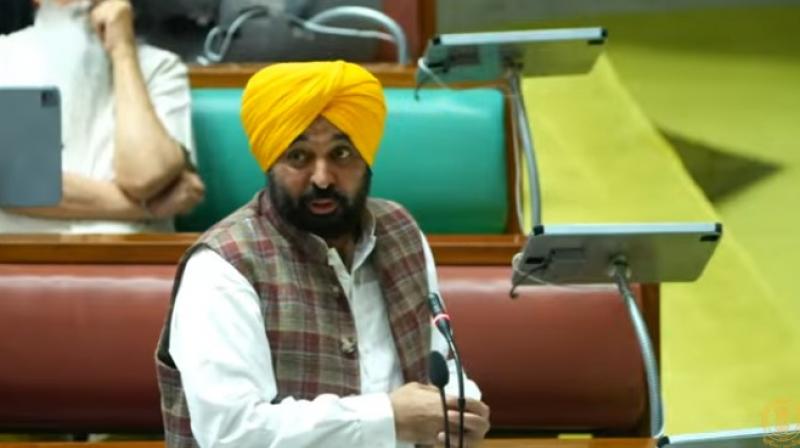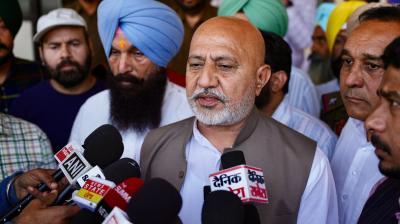
All these questions demand the attention not only of lawmakers but also of politicians.
Rozana Spokesman: Punjab Assembly’s Move to Refer Sacrilege Bill to Select Committee is a Wise Step
The Punjab Vidhan Sabha’s decision to refer the special bill aimed at curbing sacrilege of religious scriptures to a select committee can be termed appropriate. The state government had convened a special session of the Assembly to pass this bill, but due to its unpreparedness, the session had to be extended from two to four days. After the bill was introduced on Monday, a four-hour debate was held on Tuesday.
Following broad deliberations and the need for consultations with various religious and social representatives, it was deemed better to send the bill to the select committee. The committee has been given six months to complete its work, which appears to be a reasonable timeline. Despite the political maneuvering and accusations during the entire exercise, a positive aspect is that the government chose patience over haste in passing the bill.
Such patience was necessary. Cases like sacrilege are deeply tied to public sentiments, which, in any region, can lead to disruption of public life and even violent incidents. Therefore, it is best that all legal and socio-religious concerns are thoroughly examined before enacting any law so that its potential loopholes or weaknesses cannot be exploited by criminal elements.
Punjab has already seen the failure of three previous anti-sacrilege bills. In 2016, the bill passed by the Parkash Singh Badal government was returned by the President on the grounds that it was limited only to the Guru Granth Sahib and did not include scriptures of other religions.
Subsequently, two more bills passed by Congress and Aam Aadmi Party (AAP) governments also failed to receive the President’s assent and therefore could not become law. To avoid a similar fate for this fourth bill, it is essential that all old and new legal issues are examined in detail. The select committee is the most suitable legislative mechanism for doing so.
Titled the “Punjab Prevention of Offenses Against Sacred Scriptures Bill, 2025,” this new bill proposes life imprisonment (10 years to life) and a fine ranging from Rs 5 to Rs 10 lakh for those convicted of sacrilege of the Guru Granth Sahib, Shrimad Bhagavad Gita, Quran Sharif, and the Bible (Injil).
Similarly, those attempting sacrilege could face 3 to 5 years of imprisonment and a fine ranging from Rs 3 to Rs 5 lakh. During the debate, BJP legislators demanded that Hanuman Chalisa and Ramcharitmanas (Tulsidas Ramayana) also be brought under the purview of this bill. In the coming days, more such demands may arise, which the select committee will have to address.
One more complex issue remains. As acknowledged by Chief Minister Bhagwant Mann during the debate—and supported by at least two Congress MLAs—the Guru Granth Sahib is not merely a religious text but is accorded the status of a living Guru.
This fact was affirmed by the Supreme Court in its March 2000 verdict in the Somnath vs. Shiromani Gurdwara Parbandhak Committee case. In light of this ruling, is it legally or religiously appropriate to equate the Guru Granth Sahib with other religious scriptures? Given its status as a “living” Guru, isn’t there a need for a separate bill?
Similarly, the theft or desecration of idols from Hindu temples also falls under the ambit of sacrilege. Should these be treated merely as routine crimes?
All these questions demand the attention not only of lawmakers but also of politicians. The AAP government has often been accused of indulging merely in "optics"—i.e., showmanship—with reality being completely different. How it disproves such allegations is both a challenge and an opportunity for the Bhagwant Mann government.














